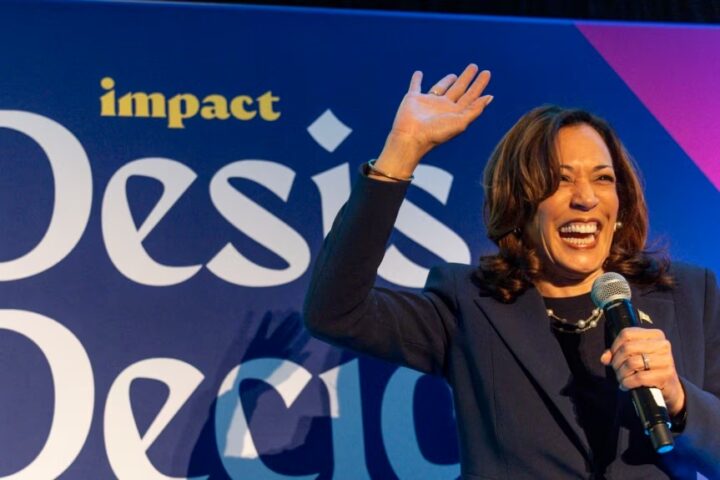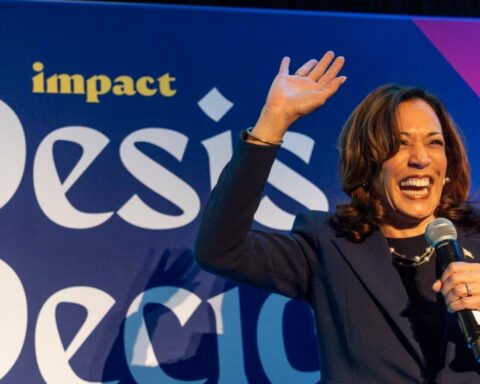More people under 40 in England and Wales now declare “no religion” than profess to be Christian – the first time the UK’s dominant religion has been pushed into second place in any age group.
The striking census findings – which also show more than 50% of twentysomethings are not religious, compared with under 37% a decade earlier – are expected to fuel debate over whether state schools should still be required to provide “broadly Christian” daily worship, and the role of the Church of England in parliament.
In the two previous decades when the Office for National Statistics (ONS) asked the voluntary question on religion, Christianity came out on top as a proportion of every single age group. But in an almost complete reversal of the picture seen a decade ago, there are now 9.8 million Christians aged under 40, but 13.6 million people with no religion.
Campaigners for non-religious people said the figures “make plain that the UK faces a non-religious future” and called on the government to adjust public policy and “renegotiate the place of religion or belief in today’s society”.
Last week’s rejection by the Church of England of demands to allow clergy to conduct same-sex marriages is likely to further the trend, said Abby Day, a professor of race, faith and culture at Goldsmiths, University of London, who said the church continued to show itself as “radically out of step”.
“Christianity is fading fast because of generational change,” she said. “The baby boomers, the millennials and generation Z are all turning away from Christianity.”
Andrew Copson, the chief executive of Humanists UK, said on Monday: “Today’s results only serve to underline the archaic place that collective worship and faith-based discrimination have in our schools.”
He said the figures were “in stark contrast to how our state institutions operate today. No other European country has such a religious setup as we do in terms of law and public policy, while at the same time having such a non-religious population.”
The Church of England pledged to “connect with generation Z” and said “every generation needs to hear the good news of Jesus Christ”.
“We know that younger people today are less likely to have been brought up in the Christian faith than in the past,” said Dr Stephen Hance, its national lead on evangelism.
“But while they may be less familiar with its message, that doesn’t mean they are less open to faith. Our own research on prayer last year found, for example, that younger people actually appear to be more likely to pray than older generations.”
The ONS said: “An ageing population for those who identified as Christian and fewer people who identified this way in younger age groups are both factors that have contributed to the overall decrease in this group.”
Census figures released in December had already shown England is no longer a majority Christian country, with the biggest factor being the growth of “no religion”.
This outstripped the growth in the Muslim population, which grew from 2.7 million people to 3.9 million in a decade.
The latest data, diving deeper into the religious makeup of England and Wales by age and sex, shows you are most likely to find non-believers in groups of 27-year-olds, where more than half do not believe in any god. To find the most Christians, look for gatherings of 89-year-olds, where eight out of 10 people believe.
The average age of those who identified as “Christian” increased from 45 years in 2011 to 51 in 2021. But even older generations who are far more likely to be Christian than non-religious have declared a substantial reduction in Christian faith in the past decade.
Followers of Islam have the youngest age profile: 27 on average, followed by 32 for people with “no religion”. The average age of Sikhs and Hindus (both 37) and Buddhists (43) also increased, but Christians are by far the oldest, at 51 on average.
There was no change in the average age of Jewish people – 41– and the age profile of people following that faith is more evenly distributed than the overall population.
Among the minority religions that people could write in on the census forms, the average age of satanists was 30, Shamans 37, Wiccans 39, Scientologists 45, druids 53 and free thinkers 58. Women were more likely to identify as Christians and Buddhists than men were.
… we have a small favour to ask. Tens of millions have placed their trust in the Guardian’s fearless journalism since we started publishing 200 years ago, turning to us in moments of crisis, uncertainty, solidarity and hope. More than 1.5 million supporters, from 180 countries, now power us financially – keeping us open to all, and fiercely independent. Will you make a difference and support us too?
Unlike many others, the Guardian has no shareholders and no billionaire owner. Just the determination and passion to deliver high-impact global reporting, always free from commercial or political influence. Reporting like this is vital for democracy, for fairness and to demand better from the powerful.
And we provide all this for free, for everyone to read. We do this because we believe in information equality. Greater numbers of people can keep track of the global events shaping our world, understand their impact on people and communities, and become inspired to take meaningful action. Millions can benefit from open access to quality, truthful news, regardless of their ability to pay for it.

















